McGuinness legacy will be to shed more light on this serious illness, says NI man with Amyloidosis
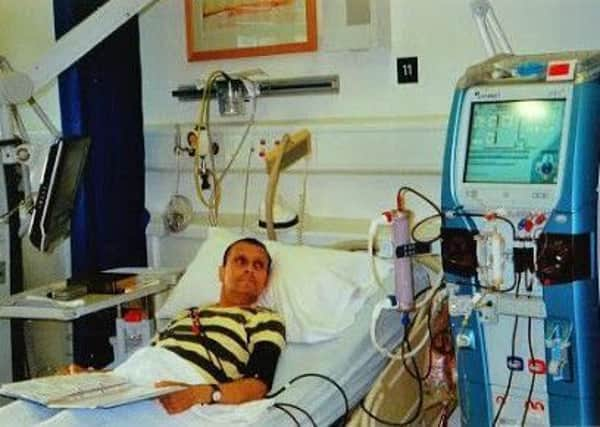

Colin, who lives in Bangor, Co Down, has revealed he sent a card to McGuinness just a week before his passing, in a bid to let him know that he was not alone.
“My first reaction when I heard that Mr McGuinness had been diagnosed with Amyloidosis was shock, because the condition is so rare. For years I had never met or even heard of a fellow Amyloidosis sufferer in Northern Ireland.
Advertisement
Hide AdAdvertisement
Hide Ad“My second thought was that he must have been feeling very lonely, because it is a very isolating disease.
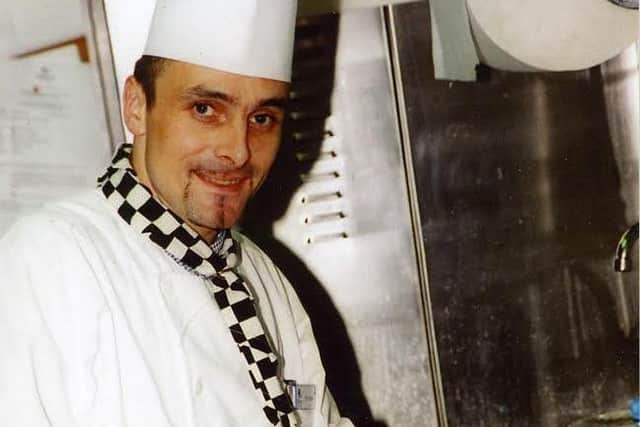

“Amyloidosis is a difficult disease and there is little public awareness about it. Maybe one last legacy of Martin McGuinness will also be to help shed more light and public attention on this debilitating and serious illness.”
Colin reveals he fought for a year to receive a diagnosis. Now aged 51, he has battled the disease for three and a half years.
“I had enjoyed a successful career as a chef, and spent 10 years in Israel working my way up to the Hilton.
Advertisement
Hide AdAdvertisement
Hide Ad“Suddenly in October 2013 I began to feel extremely tired and fatigued. My weight had plummeted and doctors were very concerned. One day they looked at me and said I looked emaciated. I’ll never forget looking at my reflection and feeling shocked; my knees were jutting out of my skinny legs, my skin was yellow, I was on a puree diet because I couldn’t eat and I had black eyes. I didn’t look like my old self at all. In fact, one day I bumped into my cousin and was speaking to her for over five minutes before she realised who I was!
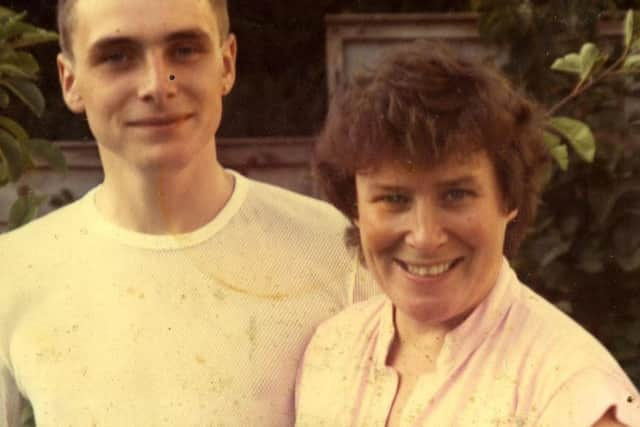

“At the time I was in Bangor working for people with Down’s Syndrome. I had become so exhausted that I was actually having to sit down to do my work, petrified people would think I was just being lazy. I remember my two managers being so concerned about me that they stood over me, just to make sure I ate a tiny quarter of a sandwich.”
Despite his symptoms, Colin was only diagnosed after his concerned mother convinced doctors to keep him overnight in the Ulster Hospital for further tests, which eventually led them to perform a biopsy on his spine and kidneys.
“Amyloidosis is simply not something doctors look for, it’s a mystery disease because it doesn’t show up on blood tests. You actually have to check the tissue to even find it.
Advertisement
Hide AdAdvertisement
Hide Ad“A couple of days after my biopsy, the main haematologist came back with a crowd of doctors. He just looked at me and said the diagnosis was very serious.
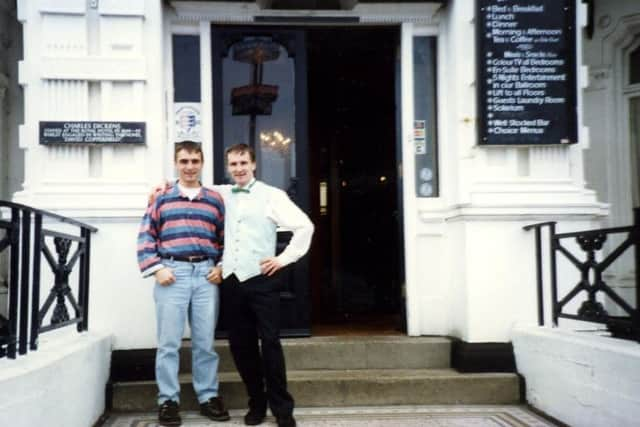

“But when he told me I had Amyloidosis it didn’t mean anything at all to me. He explained it is a group of rare but serious conditions caused by deposits of abnormal protein, called amyloid, in tissues and organs throughout the body.
“In my case or a person similar to me, it doesn’t disperse properly and covers the organs like a mesh.
“It’s very serious, its basically a life sentence. It covered most of my organs and my liver was so swollen they couldn’t even touch my stomach. They told me I was very lucky not to have it on my heart.
Advertisement
Hide AdAdvertisement
Hide Ad“When they told me I would never work again, I was very upset. That was very hard to deal with.”
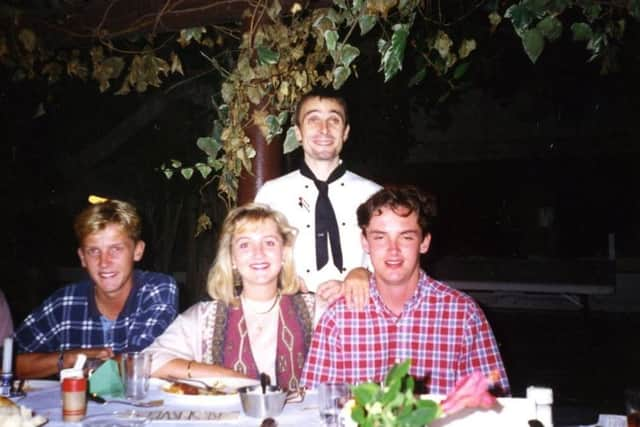

Due to the extreme rarity of the condition, Colin revealed Northern Ireland patients must travel to London for specialist treatment.
“I am treated at the Royal Free Hospital, which is where rare diseases like Ebola are treated.
“When I was at the hospital, that was the first time I had seen another Amyloidosis sufferer, and I actually started to cry. Up until then I had been struggling on my own.
Advertisement
Hide AdAdvertisement
Hide Ad“It’s very sad from a human level to hear of Mr McGuinness’s passing so quickly after his diagnosis. I hope he received my letter and knew he was in our thoughts and prayers.
“Perhaps now more people will realise how serious this disease is, and be aware of the symptoms. That would mean a lot to me.
When I was diagnosed with Amyloidosis it didn’t mean anything to me,” said Colin.
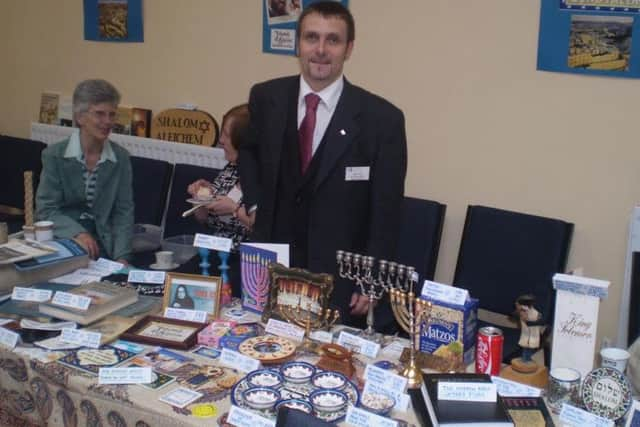

“The condition is so rare, particularly in Northern Ireland, that I often find myself having to explain to medical staff what they are treating me for.
Advertisement
Hide AdAdvertisement
Hide Ad“Blood tests don’t show this condition, it has to be done by biopsy - but doctors do not look for it because it is so rare, and I think that is a real shame.
“There needs to be more awareness of this dangerous disease, as a lot more could be done if you are diagnosed sooner.
“Sadly, I think Mr McGuinness would have fought for a diagnosis for a long time as well.
“Knowing my own experience, I think it is likely he might not have even realised what was wrong with him until it was too late.
Advertisement
Hide AdAdvertisement
Hide Ad“Like a lot of terrible diseases, unfortunately symptoms only show when the condition has developed.”
Colin believes if he had been diagnosed sooner, he could have been saved from much ‘unnecessary suffering.’
“There is no support for people in Northern Ireland who suffer from this disease because it is so rare.
“More needs to be done to raise awareness of Amyloidosis symptoms. When eveything else comes back negative, my advice is ask for a biopsy.
Advertisement
Hide AdAdvertisement
Hide Ad“It is such a mystery disease, no-one knows how you get it. It’s not contagious, and they are looking into if it is hereditary. They just don’t know.
“They say the average age of diagnosis of Amyloidosis are males in their late forties, so I was right on average.
“There needs to be more support funding wise, there needs to be as much research into this disease as cancer.
“When I was first diagnosed I did research online and it said to expect to live for around a year or slightly more.
Advertisement
Hide AdAdvertisement
Hide Ad“However I have now been receiving treatment for three and a half years and my doctors are really pleased with my progress. They say it’s a miracle.”
Whilst Amyloidosis, which attacks the vital organs of the body, is incurable it is treated with chemotherapy and other drugs such as Thalidomide.
Colin explained: “I have to take 21 days each month of chemotherapy on top of kidney dialysis three days a week in the Ulster Hospital.
“Going into dialysis it’s like a Russian roulette, there’s a lot of death. Sometimes you go in and people who were there before suddenly aren’t there anymore.
Advertisement
Hide AdAdvertisement
Hide Ad“And it’s harder because no one else is receiving the same treatment as me, it’s different than cancer.
“It’s incurable. You can count how many years you have left on two hands - if you are lucky.
“My story is remarkable, to have lived for so long after my diagnosis, my doctors say it is a miracle.
“So when I heard of Martin McGuiness’s passing, I was very sad.
Advertisement
Hide AdAdvertisement
Hide Ad“Now I want to help raise awareness of this awful condition.
“My advice is to look out for warning signs. The main ones are serious fatique and loss of appetite, as well as any swelling. Please ask for a biopsy if blood tests don’t reveal anything. Doctors might not look for it - so make sure you request one.”
Visit amyloidosis.org.uk for more information.